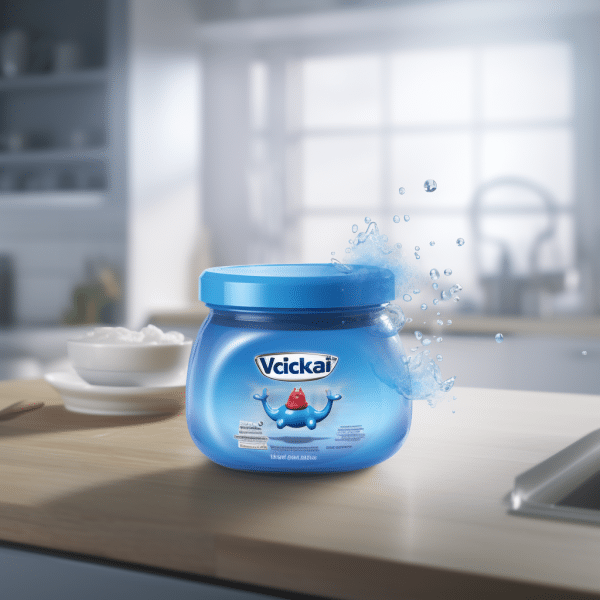Postpartum Depression: Treatment, Support, and Recovery
Postpartum depression is a challenging condition that affects many new mothers, but with the right support and treatment, it is possible to regain joy and confidence in motherhood. Seeking support from healthcare providers, such as therapists or counselors, is essential in dealing with postpartum depression. Treatment options for postpartum depression include psychotherapy, medication, and a combination of both. Psychotherapy, such as cognitive-behavioral therapy or interpersonal psychotherapy, can help individuals cope with their feelings and find effective ways to manage their symptoms. Antidepressants may also be prescribed, and most can be used while breastfeeding with minimal risk to the baby. In severe cases, hospitalization may be necessary. Additionally, lifestyle changes such as getting enough rest, maintaining a healthy diet, engaging in physical activity, and seeking support from loved ones can contribute to the treatment and recovery process. It’s important to continue with treatment even after symptoms improve to prevent a relapse.
Key Takeaways:
- Seek support from healthcare providers, such as therapists or counselors, when dealing with postpartum depression.
- Treatment options include psychotherapy, medication, or a combination of both.
- Psychotherapy, such as cognitive-behavioral therapy or interpersonal psychotherapy, can help manage symptoms and cope with feelings.
- Most antidepressants used to treat postpartum depression are safe to use while breastfeeding.
- In severe cases, hospitalization may be necessary for intensive treatment.
Recognizing Postpartum Depression Symptoms

Recognizing the symptoms of postpartum depression is crucial in addressing the condition effectively and seeking the necessary support. Postpartum depression affects approximately 10-15% of new mothers and can manifest in various ways. Some common symptoms include:
- Feeling overwhelmingly sad or hopeless
- Experiencing extreme fatigue or low energy levels
- Losing interest in activities once enjoyed
- Having difficulty sleeping or sleeping too much
- Experiencing changes in appetite, such as sudden weight loss or gain
- Feeling irritable or easily agitated
- Experiencing difficulty bonding with the baby or a lack of interest in the baby
If you or someone you know is experiencing these symptoms, it is important to reach out for help. Postpartum depression is a treatable condition, and seeking support can make a significant difference in recovery.
Postpartum Depression
It is worth noting that postpartum depression is different from the “baby blues,” which are common and typically resolve within a few weeks after childbirth. If symptoms persist or worsen over time, it may indicate postpartum depression and should be addressed with the help of a healthcare professional.
Remember, you are not alone in this journey. Many resources and support systems are available to assist you in managing postpartum depression and finding your way back to emotional well-being.
| Postpartum Depression Symptoms | Common Signs |
|---|---|
| Feeling overwhelmingly sad or hopeless | Experiencing an intense and prolonged sense of sadness or hopelessness that affects daily functioning. |
| Experiencing extreme fatigue or low energy levels | Feeling constantly exhausted, even after adequate rest, and lacking the energy to engage in usual activities. |
| Losing interest in activities once enjoyed | Losing pleasure or interest in activities that were previously enjoyable or fulfilling. |
| Having difficulty sleeping or sleeping too much | Experiencing changes in sleep patterns, such as insomnia or excessive sleep, that disrupt daily routines. |
| Experiencing changes in appetite, such as sudden weight loss or gain | Having irregular eating patterns and significant changes in weight, either gaining or losing without intentional effort. |
| Feeling irritable or easily agitated | Becoming easily annoyed or agitated, even in situations that would not typically elicit such responses. |
| Experiencing difficulty bonding with the baby or a lack of interest in the baby | Having difficulty forming a strong emotional connection with the baby or experiencing a lack of interest in caring for the baby. |
“Seeking support and recognizing the symptoms of postpartum depression are crucial steps towards getting the help you need. Remember, you are not alone in this journey.”
Seeking Professional Support for Postpartum Depression
Seeking support from healthcare providers, such as therapists or counselors, is essential in dealing with postpartum depression and finding effective ways to cope with its challenges. Postpartum depression can be a difficult and overwhelming experience, and seeking professional help is crucial in managing and overcoming this condition.
Professional support services for postpartum depression are designed to provide guidance, therapy, and a safe space for individuals to express their emotions and concerns. Therapists and counselors are trained to understand the complexities of postpartum depression and can offer valuable insights and coping strategies to navigate through this challenging time.
| Type of Support | Description |
|---|---|
| Therapy | Therapy sessions with a licensed professional can help individuals explore their thoughts and feelings, develop effective coping mechanisms, and gain a better understanding of their personal experience with postpartum depression. Different therapeutic approaches, such as cognitive-behavioral therapy or interpersonal psychotherapy, can be utilized based on the individual’s needs. |
| Support Groups | Joining support groups specifically tailored to postpartum depression can provide a sense of community and connection. These groups offer a supportive environment where individuals can share their experiences, receive encouragement, and gain insights from others who have walked a similar path. |
| Medication | In some cases, healthcare providers may prescribe medication to help manage postpartum depression. Antidepressants can effectively alleviate symptoms and improve overall well-being. It is important to consult with a healthcare professional to determine if medication is a suitable option and to address any concerns or questions. |
Finding the Right Support
When seeking professional support for postpartum depression, it is important to find the right provider who understands and specializes in maternal mental health. Consider asking for recommendations from healthcare professionals, trusted friends, or online communities that focus on postpartum depression. Take the time to research potential therapists or counselors to ensure they have the necessary qualifications and experience to address postpartum depression effectively.
Remember, seeking professional support is not a sign of weakness but a proactive step towards healing and recovery. With the right support system in place, individuals can overcome postpartum depression and experience renewed emotional well-being.
Treatment Options for Postpartum Depression
Treatment options for postpartum depression include psychotherapy, medication, or a combination of both, each playing a valuable role in the recovery process. Psychotherapy, such as cognitive-behavioral therapy (CBT) or interpersonal psychotherapy (IPT), can provide individuals with the tools and support they need to cope with their feelings and find effective ways to manage their symptoms.
According to the National Institute of Mental Health, CBT is a type of talk therapy that helps individuals identify and change negative thought patterns and behaviors. It can help individuals develop healthy coping strategies and improve their overall well-being. IPT, on the other hand, focuses on improving interpersonal relationships and resolving conflicts, as these factors can contribute to postpartum depression.
Medication, such as antidepressants, may also be prescribed to individuals experiencing postpartum depression. It’s important to note that most antidepressants can be used while breastfeeding with minimal risk to the baby. However, it’s essential to consult with a healthcare provider to discuss the potential benefits and risks of medication and determine the most suitable treatment approach based on individual needs.
| Treatment Options | Description |
|---|---|
| Psychotherapy | Cognitive-Behavioral Therapy (CBT) or Interpersonal Psychotherapy (IPT) can help individuals cope with their feelings and manage symptoms effectively. |
| Medication | Antidepressants may be prescribed, and most can be used while breastfeeding with minimal risk to the baby. Consult with a healthcare provider to discuss the benefits and risks. |
| Combination of Both | Some individuals may benefit from a combination of psychotherapy and medication for comprehensive treatment. |
It’s important to remember that every individual is unique, and what works for one person may not work for another. Seeking professional guidance from healthcare providers, such as therapists or counselors, is crucial in finding the right treatment approach. They can provide personalized support and advice based on individual circumstances, ensuring the most effective path to recovery.
Psychotherapy for Postpartum Depression
Psychotherapy, including cognitive-behavioral therapy and interpersonal psychotherapy, can be highly effective in helping individuals cope with postpartum depression and find effective strategies to manage their symptoms. These therapeutic approaches aim to address the underlying causes of postpartum depression, provide individuals with tools to regulate their emotions, and promote positive coping mechanisms.
In cognitive-behavioral therapy (CBT), individuals work with a therapist to identify negative thought patterns and develop healthier thinking habits. This type of therapy focuses on changing negative beliefs and behaviors that contribute to postpartum depression, as well as teaching individuals practical skills to manage stress, anxiety, and other symptoms. By challenging negative thoughts and developing more positive and constructive thinking patterns, individuals can improve their emotional well-being and overall functioning.
Interpersonal psychotherapy (IPT) focuses on improving relationships and enhancing social support. This approach recognizes the significant impact that interpersonal stressors and changes in relationships can have on postpartum depression. Through IPT, individuals can explore their feelings, address conflicts, and develop healthy communication and problem-solving skills. By strengthening relationships and establishing a support system, individuals can experience improved emotional well-being and reduced symptoms of postpartum depression.
Psychotherapy can provide individuals with a safe and supportive environment to express their emotions, gain insights into their behaviors and thought patterns, and learn practical strategies to cope with postpartum depression. These approaches can empower individuals and help them regain a sense of control over their lives.
| Treatment Option | Description |
|---|---|
| Cognitive-Behavioral Therapy (CBT) | Focuses on identifying and modifying negative thoughts and behaviors related to postpartum depression. Equips individuals with practical skills to manage symptoms and improve emotional well-being. |
| Interpersonal Psychotherapy (IPT) | Targets relationship issues and social support deficits commonly associated with postpartum depression. Helps individuals improve communication, address conflicts, and strengthen relationships. |
It’s important to note that psychotherapy may be used as a standalone treatment or in combination with medication, depending on the severity of the individual’s symptoms and their specific needs. It is recommended to consult with a healthcare provider, such as a therapist or counselor, to determine the most appropriate treatment approach.
Medication for Postpartum Depression
Antidepressant medication can be an important tool in the treatment of postpartum depression, and most can be used while breastfeeding with minimal risk to the baby. These medications can help regulate mood, reduce anxiety, and improve overall well-being. It’s crucial to consult with a healthcare provider who can recommend the most suitable medication based on individual needs.
There are several types of antidepressants commonly prescribed for postpartum depression, such as selective serotonin reuptake inhibitors (SSRIs) or serotonin-norepinephrine reuptake inhibitors (SNRIs). These medications work by affecting the levels of certain neurotransmitters in the brain, helping to alleviate symptoms of depression. It’s important to note that medication should always be used in conjunction with other forms of treatment, such as therapy or lifestyle changes, to achieve the best outcomes.
Postpartum Depression
When considering medication for postpartum depression, many women may have concerns about breastfeeding. However, most antidepressants are considered safe to use while breastfeeding, with minimal risk to the baby. It’s essential to discuss the specific medication being prescribed with a healthcare provider to ensure its compatibility with breastfeeding. They can provide guidance and address any concerns or questions, helping individuals make informed decisions about their treatment plan.
As with any medication, it’s important to closely monitor its effects and potential side effects. Regular communication with a healthcare provider is necessary to adjust dosages if needed, address any concerns, and ensure that the chosen medication is effectively managing the symptoms of postpartum depression. Remember that medication is just one aspect of treatment, and it’s crucial to complement it with therapy, self-care practices, and the support of loved ones to achieve holistic recovery.
| Key Points |
|---|
| Antidepressant medication is an important tool in the treatment of postpartum depression. |
| Most antidepressants can be used while breastfeeding with minimal risk to the baby. |
| It’s crucial to consult with a healthcare provider to determine the most suitable medication. |
| Medication should be used in conjunction with therapy and lifestyle changes for optimal results. |
| Regular communication with a healthcare provider is necessary to monitor effects and address concerns. |
Lifestyle Changes to Support Postpartum Depression Recovery
Adopting certain lifestyle changes, such as prioritizing rest, maintaining a nutritious diet, engaging in physical activity, and seeking support, can significantly contribute to managing postpartum depression and promoting overall well-being.
Rest is crucial for new mothers experiencing postpartum depression. It is essential to prioritize self-care and make time for adequate sleep and relaxation. By ensuring sufficient rest, women can recharge both physically and mentally, helping to alleviate symptoms and improve their overall mood.
Managing Postpartum Depression
Maintaining a balanced and nutritious diet is another key aspect of managing postpartum depression. Consuming a variety of fruits, vegetables, whole grains, and lean proteins can provide the necessary nutrients to support mental health. A healthy diet can enhance energy levels, stabilize mood, and contribute to overall well-being.
Engaging in regular physical activity can have significant benefits for individuals with postpartum depression. Exercise releases endorphins, which are natural mood boosters. Whether it is taking a brisk walk, practicing yoga, or participating in a fitness class, physical activity can help reduce stress, improve sleep quality, and enhance self-esteem.
| Seeking Support | Benefits |
|---|---|
| Joining a support group |
|
| Reaching out to loved ones |
|
| Consulting healthcare providers |
|
Seeking support from loved ones and healthcare providers is crucial in managing postpartum depression. Connecting with a support group can provide a sense of belonging, reduce feelings of isolation, and offer a safe space to share experiences. Reaching out to loved ones for emotional support and assistance with daily tasks can alleviate the burden of postpartum responsibilities. Additionally, consulting healthcare providers, such as therapists or counselors, can provide professional guidance, access to therapy or counseling options, and reassurance throughout the recovery process.
By incorporating these lifestyle changes and seeking appropriate support, individuals can effectively manage postpartum depression. It is important to remember that recovery takes time and patience, but with the right tools and resources, individuals can regain emotional balance and achieve long-term well-being.
Support Groups for Postpartum Depression
Support groups offer a safe and nurturing environment for individuals experiencing postpartum depression, providing a valuable space for sharing experiences, offering support, and finding strength in community. These groups consist of individuals who have faced or are currently facing similar challenges, creating a sense of understanding and empathy that can be comforting and empowering.
Within support groups, individuals can freely express their thoughts and emotions, knowing that they are not alone. The opportunity to share personal experiences allows for validation and the realization that postpartum depression is a common struggle that many others have overcome. It becomes easier to navigate the complexities of managing postpartum depression when surrounded by others who truly understand.
In addition to emotional support, support groups often offer practical advice and resources. Members can exchange coping strategies, discuss treatment options, and learn about community resources that may be beneficial. This information-sharing aspect of support groups can be invaluable in navigating the treatment and recovery process.
| Benefits of Support Groups for Postpartum Depression |
|---|
| Opportunity to share experiences and feel understood |
| Emotional support and encouragement from others |
| Exchange of coping strategies and practical advice |
| Access to information about treatment options and community resources |
| A sense of belonging and community |
Consider reaching out to local healthcare providers, postpartum support organizations, or online communities to find support groups in your area. Remember, you are not alone, and seeking support from others who have walked a similar path can make a significant difference in your journey towards healing and recovery.
Severe Cases and Hospitalization for Postpartum Depression
In severe cases of postpartum depression, hospitalization may be necessary to ensure the safety and well-being of both the individual and their baby. Hospitalization provides a structured and supportive environment where individuals can receive intensive care and monitoring from a specialized healthcare team. It allows for close observation of symptoms and ensures prompt intervention if needed.
During hospitalization, individuals have access to a range of treatments and resources tailored to their specific needs. This may include individual therapy sessions, group therapy, medication management, and holistic approaches such as yoga or art therapy. The goal is to provide comprehensive care and support to promote recovery.
Hospitalization also offers a safe and controlled setting for the woman to take a break from her daily stressors and responsibilities, allowing her to focus on her recovery. This can be particularly beneficial in severe cases when the individual may be experiencing thoughts of self-harm or harm to the baby. In the hospital, they can receive constant monitoring and support to ensure their safety.
| Treatment Benefits | Role of Hospitalization |
|---|---|
| Intensive care and monitoring | Ensures prompt intervention if needed |
| Access to various treatments | Tailored to individual needs |
| Structured and supportive environment | Promotes recovery and well-being |
| Break from daily stressors | Allows focus on recovery |
| Constant monitoring and support | Ensures safety |
It’s important to remember that hospitalization for postpartum depression is not a sign of weakness. Rather, it is a proactive step taken to ensure the best care and support for both the mother and her baby. With the right treatment and support, individuals can begin their journey towards recovery and regain their emotional well-being.
Continuing Treatment to Prevent Relapse
Continuing with treatment, including therapy, support, and self-care practices, is essential in preventing a relapse and promoting sustained recovery from postpartum depression. Postpartum depression is a complex condition that requires ongoing attention and management. By staying engaged in treatment, individuals can build on the progress they have made and develop strategies to maintain their mental well-being over the long term.
One effective approach is to continue attending therapy sessions. Therapy provides a safe space to explore emotions, develop coping mechanisms, and address any underlying issues that may contribute to postpartum depression. Through cognitive-behavioral therapy, individuals learn to challenge negative thought patterns and develop healthier ways of thinking. Interpersonal therapy focuses on improving relationships and enhancing support systems, which can be crucial in maintaining recovery.
Therapy

In addition to therapy, support from healthcare providers, loved ones, and support groups remains important. These relationships provide emotional support, validation, and encouragement. Loved ones can help with childcare, allowing individuals to prioritize self-care and engage in activities that promote well-being. Support groups offer a sense of community and a place to share experiences with others who truly understand the challenges of postpartum depression.
| Treatment Tips | Benefits |
|---|---|
| Attend regular therapy sessions | Develop coping mechanisms and address underlying issues |
| Seek support from loved ones | Receive emotional support and assistance with childcare |
| Join a postpartum depression support group | Find a sense of community and share experiences |
“Continuing with treatment, therapy, and support practices is crucial for preventing relapse and promoting long-lasting recovery from postpartum depression.”
Finally, practicing self-care is vital in preventing a relapse. Engaging in activities that bring joy and relaxation can help individuals maintain balance and reduce stress. Prioritizing sleep, eating well-balanced meals, and incorporating regular exercise into daily routines can also support overall well-being. By taking care of themselves physically, emotionally, and mentally, individuals can increase their resilience and decrease the likelihood of a relapse.
In conclusion, ongoing treatment, including therapy, support, and self-care practices, is essential in preventing a relapse and promoting sustained recovery from postpartum depression. By continuing to prioritize mental health and well-being, individuals can navigate the challenges of postpartum depression with strength and resilience. Remember, seeking help is a sign of strength, and with the right support, individuals can overcome postpartum depression and thrive.
Conclusion
Dealing with postpartum depression is a journey that requires support, treatment, and self-care, but with the right resources and strategies in place, it is possible to navigate this phase of motherhood confidently and regain joy in the process.
Seeking support from healthcare providers, such as therapists or counselors, is essential in dealing with postpartum depression. They can provide guidance, offer coping strategies, and create a safe space for expressing emotions and fears.
Treatment options for postpartum depression include psychotherapy, medication, and a combination of both. Psychotherapy, such as cognitive-behavioral therapy or interpersonal psychotherapy, can help individuals cope with their feelings and find effective ways to manage their symptoms.
Antidepressants may also be prescribed, and most can be used while breastfeeding with minimal risk to the baby. It’s important to consult with a healthcare provider to determine the best medication option and ensure its compatibility with breastfeeding.
In severe cases, hospitalization may be necessary to provide a higher level of care and ensure the safety and well-being of the individual. It’s crucial to recognize the signs that indicate the need for more intensive treatment and to seek immediate help in these instances.
Remember, you are not alone in this journey. Reach out for support, explore treatment options, make necessary lifestyle changes, and prioritize self-care. With the right resources and strategies, you can navigate postpartum depression and emerge stronger, finding joy and fulfillment in the process of becoming a mother.
FAQ
Q: What is postpartum depression?
A: Postpartum depression is a type of depression that can occur in women after giving birth. It is characterized by feelings of sadness, anxiety, and exhaustion that can interfere with daily functioning.
Q: Why is seeking support important in dealing with postpartum depression?
A: Seeking support from healthcare providers, such as therapists or counselors, is essential in dealing with postpartum depression. Professional support can provide individuals with strategies to cope with their feelings and manage their symptoms effectively.
Q: What are the treatment options for postpartum depression?
A: Treatment options for postpartum depression include psychotherapy, medication, or a combination of both. Psychotherapy, such as cognitive-behavioral therapy or interpersonal psychotherapy, can help individuals cope with their feelings and find effective ways to manage their symptoms. Antidepressants may also be prescribed, and most can be used while breastfeeding with minimal risk to the baby.
Q: What lifestyle changes can support postpartum depression recovery?
A: Engaging in lifestyle changes such as getting enough rest, maintaining a healthy diet, engaging in physical activity, and seeking support from loved ones can contribute to the treatment and recovery process of postpartum depression. These changes can help individuals regain emotional balance and promote overall well-being.
Q: How can psychotherapy help in managing postpartum depression?
A: Psychotherapy, such as cognitive-behavioral therapy or interpersonal psychotherapy, can help individuals with postpartum depression by providing them with effective coping strategies, improving their emotional well-being, and helping them develop healthier thought patterns and behaviors.
Q: Are there any medication options for postpartum depression?
A: Yes, antidepressants may be prescribed as a treatment option for postpartum depression. Many antidepressants can be safely used while breastfeeding with minimal risk to the baby. It is important to discuss the potential benefits and risks with a healthcare provider.
Q: What should I do in severe cases of postpartum depression?
A: In severe cases of postpartum depression, hospitalization may be necessary. It is important to seek immediate help if you or someone you know is experiencing severe symptoms such as thoughts of self-harm or harm to the baby. Healthcare professionals can provide intensive treatment and support in these situations.
Q: Should I continue with treatment even after my symptoms improve?
A: Yes, it is important to continue with treatment even after symptoms improve to prevent a relapse. Ongoing support, therapy, and self-care practices are essential for maintaining long-term mental health and well-being.






